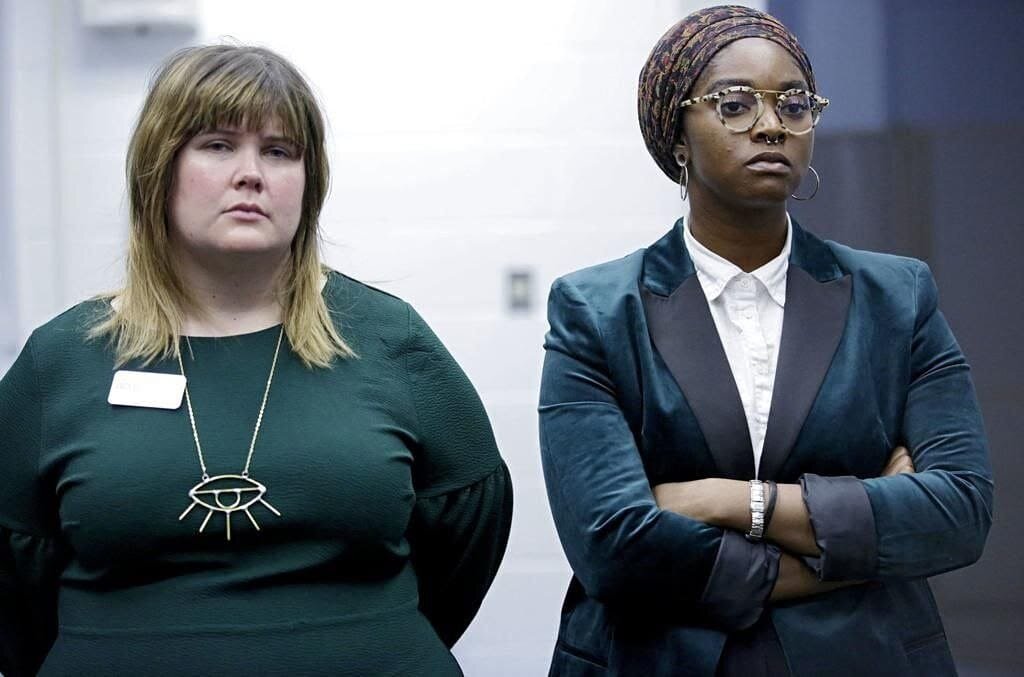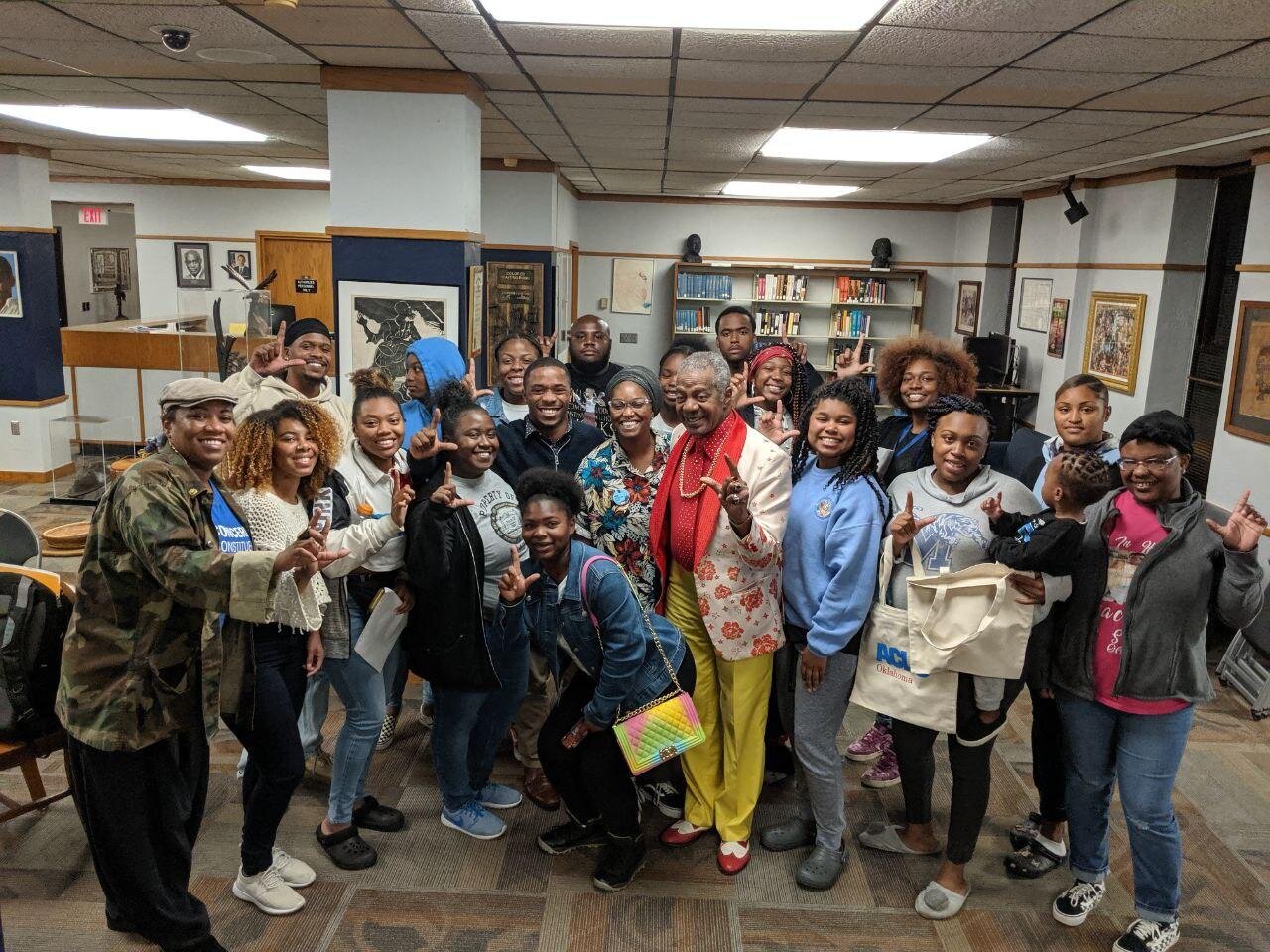
community issues
We are driving conversations in Oklahoma about what inclusive representation looks like. About what round-the-clock representation looks like. Our Oklahoma government consistently carves out our most vulnerable Oklahomans and a big part of that is because the folx that represents us don't experience the struggles everyday Oklahomans do and fall short of building bridges with the folx that they represent. Growing up as a Black Muslim-American Queer Womxn, in Oklahoma of all places, I shared the collective experience of not being seen or heard by the folks that make laws about our lives, like many Oklahomans that share House District 88 with me.
If I was missing school as a child it was because I was most likely at an HIV & AIDS Awareness Conference or in an LGBT Advocacy workshop with my mother. My mother and my grandmother instilled in me the importance of community organizing early on in life, and a key component of that is bridge-building. One of the key things that I hear about what's going on within our district, and even more so within Oklahoma as a whole, is that people don't know what resources are available to them. They don't know who provides what services and even more so we have so many people that fall through the cracks where services fall short.
In order to do community bridge-building you have to be in the community, and ready & willing to do real work - outside of the legislature. We know that communities know how to fix themselves. The people of House District 88 have continuously risen to the occasion to provide for each other when our local government turned the other cheek.
A key component of representing a community is listening to the community, meeting folx where they are in the literal sense is being a good listener, and being willing to show up. Actively building people power, community listening sessions, conversations, and action based on the things that impact Oklahomans the greatest.

Criminal Justice Reform
We are continuously striving for Criminal Justice Reform that is meaningful, holistic, and continuous in Oklahoma. This state is unique in the map of justice reform because we have been in a battle for the highest incarceration rate since 1991.
In Oklahoma we don’t have worse people, we just have an antiquated and biased justice system that affects 1 in 2 people. This is a combination of our top three (3) drivers of incarceration in Oklahoma - drug charges, property charges, and the fact that if you get either of those you stay in prison roughly 80% longer than anywhere else in the world.
House District 88 needs representation that's going to continuously fight for Criminal Justice Reform, to bring our families home, to provide Oklahomans with the help they need and stress that we will no longer continue an industrial prison complex that's built on revenge & punishment rather than rehabilitation. We need someone who's going to do this year-round, day in and day out, not just during election years.
As we have seen in the past, if we want to continue down a path that focuses on rehabilitation and restorative justice then we have to put Oklahoma Justice Reform back in the hands of the people. We also need to understand the intersections that our justice system holds: Immigration, LGBTQ+, Elderly, Juvenile Justice, Access to Public Education, Mental Healthcare, Public Healthcare, Voter Suppression, the Fight for a Living Wage, and so much more - these are all justice reform issues.
We deserve someone who understands, when leadership carves people out of meaningful justice reform we give life to the idea that our most vulnerable families deserve to be left out in the cold - this mindset is no longer acceptable. We need someone who's going to fight for funding for drug and mental health courts and their utilization. House District 88 deserves the type of representation that doesn't exploit us for our identities, but rather helps equip us with the platform to fight and be heard.
Integrated healthcare
Oklahoma’s government chooses to leave our vulnerable populations behind time and time again. We are 1 of 14 states that chose to deny Medicaid expansion carving folks that are already suffering out of a chance to seek help if needed. We see in times of crisis our most vulnerable friends and family are left out because leadership refuses to fight for us and does not have us in mind. We see this when rural hospitals and urgent cares are forced to close for lack of funding, families are left to choose between eating that week or picking up their prescriptions. Because of our lack of an integrated healthcare system that has everyone in mind we see the creation of an opioid epidemic. Oklahomans turn to self-medicating when resources aren’t provided or are inaccessible.

Public Education
I don't just care deeply about the state of our public education system, I am a product of it. The power public education has to change a student for the better, is limitless. If we put thought into not only education spending, but also how we listen to and address the needs of students then we are on the right track.
In a time where school shootings have seen a sharp rise in recent years, fine arts programs have been cut, our teachers and aids aren’t being paid enough, our students are learning from outdated material, and during the time of coronavirus, some won’t be learning at all.
Right now funding for K-12 public education is inadequate and inequitable. Relying heavily on property taxes to fund schools does nothing but further, disenfranchise students in low-income communities while perpetuating redlining and endangering the future of our public education students.
In the time of coronavirus, we see schools shifting to online schooling methods when some students don’t even have access to the internet at home. Coronavirus unearthed a lot of structural damage everyday Oklahomans suffer from, but now we don’t get the option to look away
Oklahoma wages
When we couple an inadequate public education system with our current minimum wage we get a system that was set up for people to fail. The poverty wage in Oklahoma is $7.00 and the minimum wage in Oklahoma is $7.25 and has been for the past decade - just because it's the federal floor does not mean it has to be ours.
In a time where 1 in 3 families has to choose between what basic essentials to provide for their families each month, we can’t afford to not raise the minimum wage- and this was before the Coronavirus hit. When you think about the families living from paycheck to paycheck, factor in those that lost jobs due to COVID-19, and the carve-outs from the stimulus relief efforts you get the families that make Oklahoma run being left out of the solutions yet again.
Guardians should not have to work 2 and 3 jobs to provide for their families. This is how parents miss out on the important parts of their children’s lives while trying to provide a life for them. Increasing that minimum wage to $12 is where this starts. I grew up in a single-parent household with my mother working anywhere between 2 to 3 jobs to make ends meet, she still works 2 jobs to this day.
I remember some weeks I could count on one hand how many times I saw my mother that week as a result. When we create a pathway for parents to be present, for our family and friends to make ends meet without working them to death, and a way for Oklahomans to build a savings, that’s when our children flourish. There is one wish my mother always told me she had for her children; that we not only survive but thrive in whatever we do.
I want that for my fellow Oklahomans. It's time to stop saying that college isn't for everybody and yet still leaving the folks who don't go to college by the wayside. It's time for Oklahoma to raise the minimum wage to a living wage. Raising the minimum wage to a living wage in Oklahoma means that we holistically understand that families belong together, it means that we value our people over profit, and we are dedicated to ensuring the wellbeing of the future of our state.
